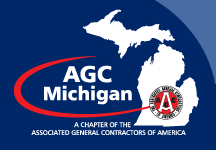Following voter approval last November of Proposal S, the Detroit Public Schools (DPS) is currently embarking on an ambitious program to construct 8 new high schools and renovate another 10 schools over the next three years.
Approximately half of the money raised by the Detroit Public Schools for its new $500 million school construction and renovation program is coming through the federal Qualified School Construction Bond (QSCB) Program. This is a new tax credit program created by the American Recovery and Reinvestment Act (ARRA).
Projects funded with bonds under the QSCB program, however, must comply with all ARRA provisions. Pursuant to the ARRA, Division B, Section 1601, Davis-Bacon labor standards must be applied to projects financed with the proceeds of Qualified School Construction Bonds.
Warning! The inclusion of federal labor standards in the DPS School Construction program creates a trap for the unwary contractor who wants to hire "Pre-Apprentices" or "Student Pre-Apprentices" or "Assistants."
Here’s why --
Section 11-3 of the Project Labor Agreement (PLA) for the DPS School Construction program requires that contractors commit to a goal that apprentices will perform 25% of total craft hours on a craft-by-craft basis. In addition, 75% of the apprentice and pre-apprentice hours must be performed by Bona-Fide City Residents. Up to 15% of the 75% apprentice hours can be performed by "Pre-Apprentices."
The PLA also requires in Section 11-9 that Contractors participate in the City’s BEST Program, which is designed to create employment opportunities for students 16 to 25 years in age. These students are considered “Assistant” or “Pre-Apprentice” and must work under the direction of a skilled construction mechanic or construction professional.
The Problem: Federal Davis-Bacon labor guidelines recognize ONLY journeymen and registered apprentices. There is no classification for a Pre-Apprentice or Student Pre-Apprentice or Assistant.
These classifications are not recognized as Apprentices and contractors could be forced to pay Journeyman rates for an employee working in these classifications if they are not part of an bona fide apprenticeship program, one that is recognized by the U.S. Department of Labor Wage and Hour Division. Quoting from the applicable federal regulations --
(4) Apprentices and trainees--(i) Apprentices. Apprentices will be permitted to work at less than the predetermined rate for the work they performed when they are employed pursuant to and individually registered in a bona fide apprenticeship program registered with the U.S. Department of Labor, Employment and Training Administration, Office of Apprenticeship Training, Employer and Labor Services, or with a State Apprenticeship Agency recognized by the Office, or if a person is employed in his or her first 90 days of probationary employment as an apprentice in such an apprenticeship program, who is not individually registered in the program, but who has been certified by the Office of Apprenticeship Training, Employer and Labor Services or a State Apprenticeship Agency (where appropriate) to be eligible for probationary employment as an apprentice. The allowable ratio of apprentices to journeymen on the job site in any craft classification shall not be greater than the ratio permitted to the contractor as to the entire work force under the registered program. Any worker listed on a payroll at an apprentice wage rate, who is not registered or otherwise employed as stated above, shall be paid not less than the applicable wage rate on the wage determination for the classification of work actually performed.
Cite: 29 CFR 5.5(a)(4)
Several trade contractors who worked on the Book Cadillac Hotel project last year got caught in this trap and were forced to pay journeymen wages to employees they thought were “apprentices” but who turned out not to be part of a bona fide registered apprenticeship program. I recently learned of another contractor working a HUD project that encountered the same problem.
The Solution(?): Sorry, but there is no easy solution to this problem. The Detroit Public Schools is aggressively promoting inclusion of Detroit businesses and employment of Detroit residents in its school construction program. The DPS also wants to extend employment opportunities to students and other young people who are not part of a registered apprenticeship program. This is a laudable goal, but it may come at a significant cost.
Contractors who plan on bidding under the DPS School Construction Program would appear to have two choices: (1) add money to their bids and plan on paying journeyman wages to students (pre-apprentices, assistants), which will inflate the cost of construction, or (2) risk paying back wages and other penalties when the matter is flagged during an audit of their certified payroll records. There is little doubt that DPS will be watching this element of the program. During a presentation to the AGC of Michigan on April 22, 2010, Kevin White (DPS Director of Procurement for Capital Improvements) outlined at least three layers of scrutiny that contractors will face.
If you have questions, or would like a copy of the PLA, please contact Peter Cavanaugh at pcavanaugh@cqlawfirm.com or call him at (248) 543-8320.
Update: The U.S. Department of Labor Wage and Hour Division has a web page (here) devoted to the application of federal labor standards to ARRA funded projects.
Further Update: On or about April 30, 2010, the DPS issued Addendum No. 6 to the Martin Luther King Senior High School bid package, which will be the first project bid on May 12, 2010. Addendum No. 6 finally provided bidders with the form of agreement and terms and conditions that DPS will be using for all of its design-build contracts under the $500.5 million bond program. DPS terms and conditions recite, almost verbatim, the Davis-Bacon language quoted above (29 CFR 5.5(a)(4)). DPS also requires that the design-build (prime) contractor incorporate these labor standards into all their subcontracts.






